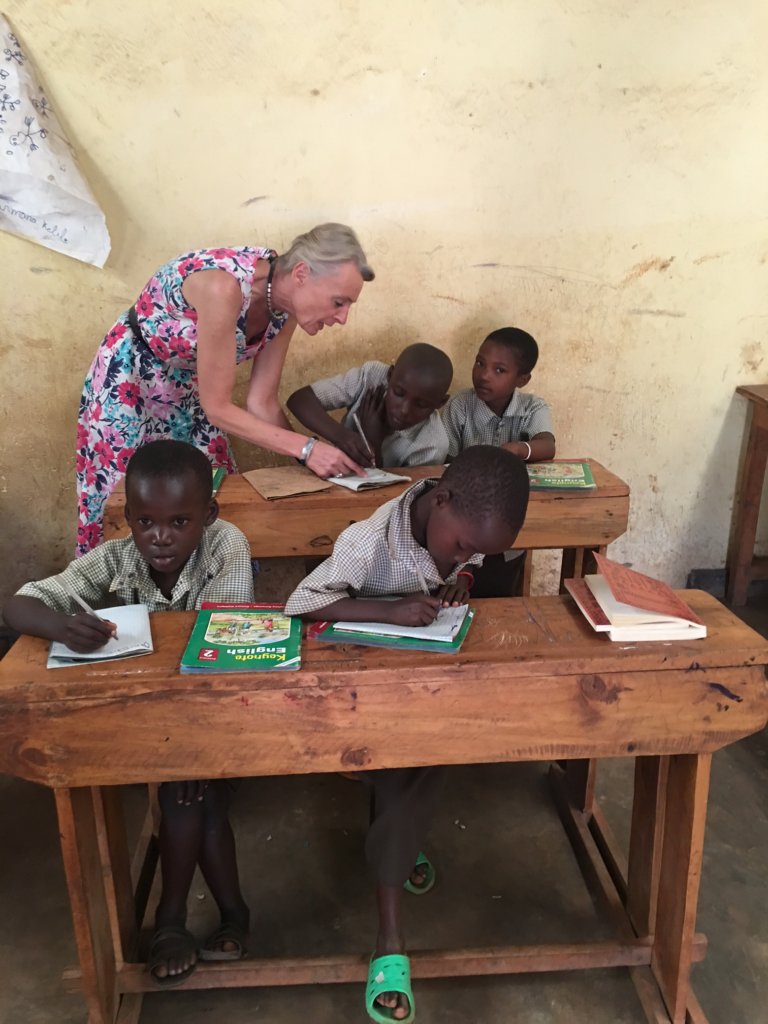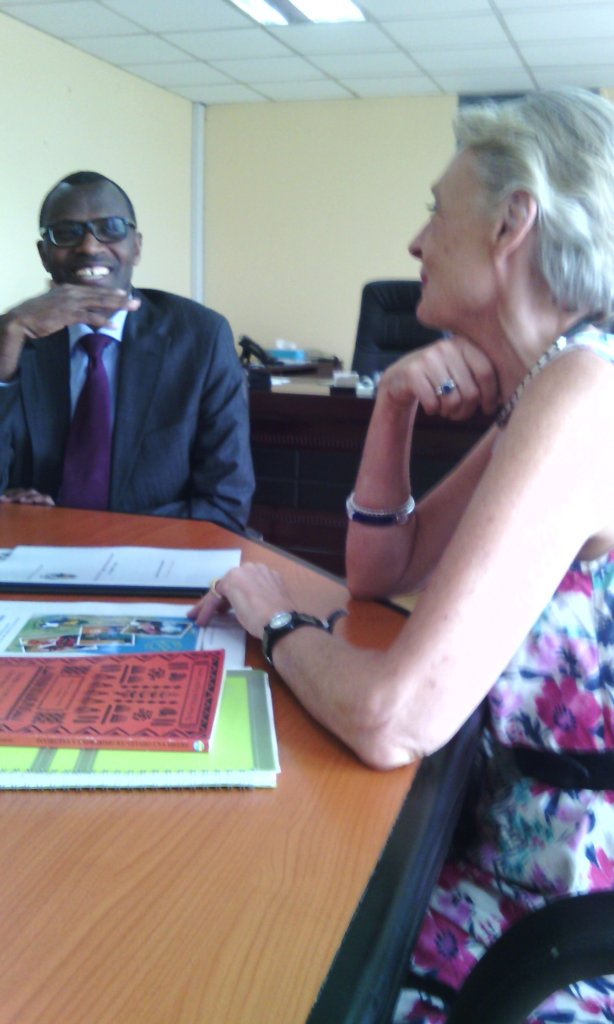By Katy Allen | Director
Education East Africa Quarterly Report
UPDATE FROM KIGALI
5th November 2016
What an amazing three months!
I have been working with Ivan, who comes to the schools with me and translates, and attends meetings with me. Ivan read the news on Rwanda television for many years, and so is recognised instantly by many people. We listen to the radio on our long drive to the project schools and Ivan’s worldwide political knowledge is extensive. As a result we have some very interesting conversations. The seasons have changed, and our drive has gone from being very dusty to very muddy and then back to dusty again.
We have spent one day a week in each of our four schools. The teaching year ended on Friday 14th October and the last few weeks of term were spent with examinations and then cleaning the schools. The schools closed on 4th November. They will open again for the new school year in mid to late January. The exact date will be announced later this month.
During our time at each school we observe several English lessons given by teachers of P1 (pupils who are on average 7 year olds) to those of P3. Each school has a ‘double shift’ system. The morning shift is from 7.20 to 11.40, and the afternoon session is from 12.40 to 5pm. Each week the pupils change shift, so those from the morning shift one week will be in the afternoon shift the next week. There are between two and three teachers of P1 English, who have one or two classes to teach in the morning and then one or two classes in the afternoon. Each class has 7 periods of English per week. Whilst observing we take extensive notes, particularly noting any difficulties with pronunciation and sentence structure. At each school we are given between one and one and a half hours to sit with all teachers of English. It is in these sessions that we give our feedback on the lessons observed. After a few weeks the teachers were able to start to advise each other on how a certain language item might have been better taught, once Ivan and I pointed out some shortcomings. The teachers have gained enormously from these sessions. One day, Liberee gave a very well structured lesson to her P1 pupils, and I was full of praise. In the teachers’ session she asked, “Where’s the criticism of my lesson?”. I said there wasn’t any, “Oh, getting criticism is the way I improve!”. We also use the teachers’ sessions to work through the NOEC books. This not only gives the teachers exposure to the correct sentence patterns but guides them in the methods to use the teach their pupils.
In the last three months I have seen a transformation in how the teachers are teaching, particularly the teachers of P1, who are our main focus. When we started our work they were using Kinyarwanda in the classroom most of the time, and translating nearly everything. They were teaching by rote with very little meaning. Now, the teachers have begun to understand the stages of a lesson, and are demonstrating new language items so that their pupils see the meaning. Then the teachers test the pupils’ understanding before they continue to teach the pupils to say the new language and then use it. This is bringing excellent results. There is now very little Kinyarwanda used in the lessons, as there is no need to use it.
In the last teaching week, we asked a firm of consultants, Three Stones, to evaluate our work. They were in each school for a day and conducted interviews and observed lessons. Their report is very helpful, highlighting that the teachers enjoy our project and are learning a lot and want more from it. All the teachers have expressed praise for the NOEC books and have stated that they will use them a lot next year as they can see how the pupils really learn when the teachers follow the lessons in the books.
Two officials from the Rwanda Education Board came to visit our work in Gikomero primary school. They observed a lesson and then talked to the teachers for nearly an hour. They were impressed by the teachers’ enthusiasm for our work and for the NOEC books. At the request of those officials I wrote a report on my views of changes needed to improve the teaching of English in P1 to P3, before all subjects are taught through the medium of English in P4.
At the end of October, I saw the Hon. Minister for Education. I had met him for the first time in August last year. He was very interested to hear of the successes of our work in such a short time. I left him with the evaluation of our work by Three Stones, and my report on the changes needed. He promised to read them, and gave me his full support for our project.
Then just before the schools closed, one of the top officials of the Rwanda Education Board told me that he had resigned from his job and wanted to come to work on our project. This not only brings huge kudos for us, but his knowledge of the system and all those working in it will be invaluable. How this develops will be in our next report, but in my last report I stated, “the key to the success of our project will be how well we can involve government officials, and to gain their commitment to take on our work if they see the benefits of it.” I do not think I could have predicted that one of those key officials would come to join us!
We are still a new project in Rwanda, but our experience of over 20 years in Tanzania has made us stand out, and given us much credibility. The readiness with which the teachers have accepted our work and learned from it has now cemented our project as a very serious part of the development work in the country.
Again, I cannot emphasise enough how your donations are what makes our work happen. Without your support our work could not continue. I am grateful beyond words for all of your support.
I wish all of you a very happy festive season, and a very happy and fulfilling new year.
With huge thanks,
Katy Allen
Director
Katy@EducationEastAfrica.org
Education is the Passport to a Self-Sustaining Life
www.EducationEastAfrica.org
Links:
Project reports on GlobalGiving are posted directly to globalgiving.org by Project Leaders as they are completed, generally every 3-4 months. To protect the integrity of these documents, GlobalGiving does not alter them; therefore you may find some language or formatting issues.
If you donate to this project or have donated to this project, you can receive an email when this project posts a report. You can also subscribe for reports without donating.
Support this important cause by creating a personalized fundraising page.
Start a Fundraiser
